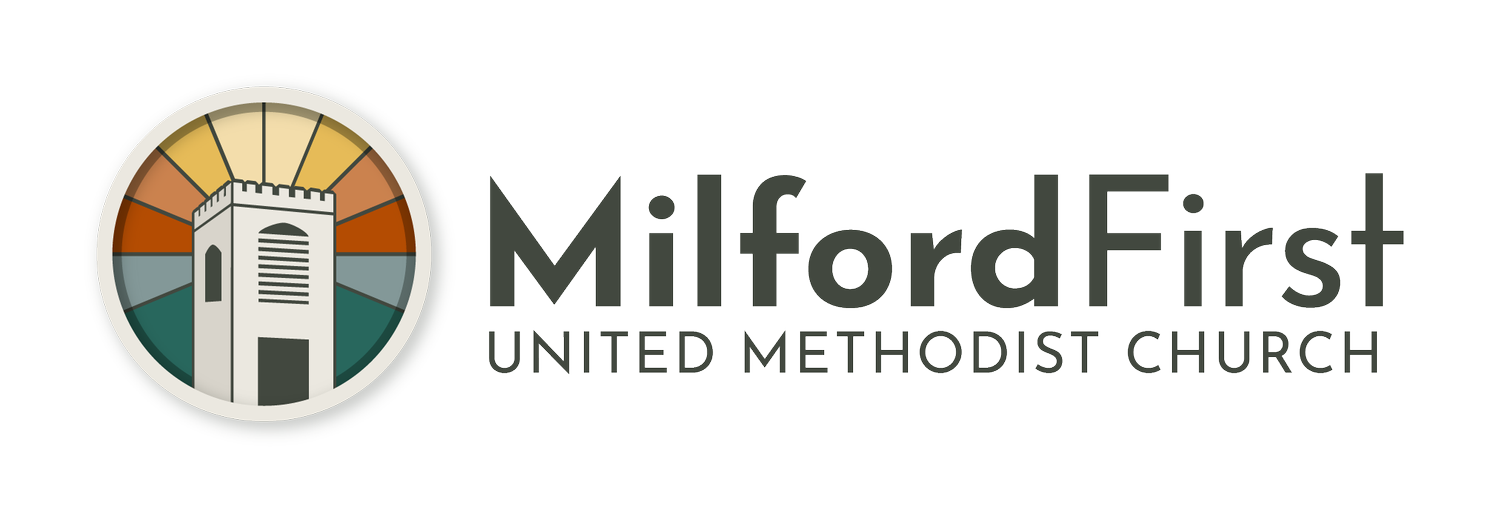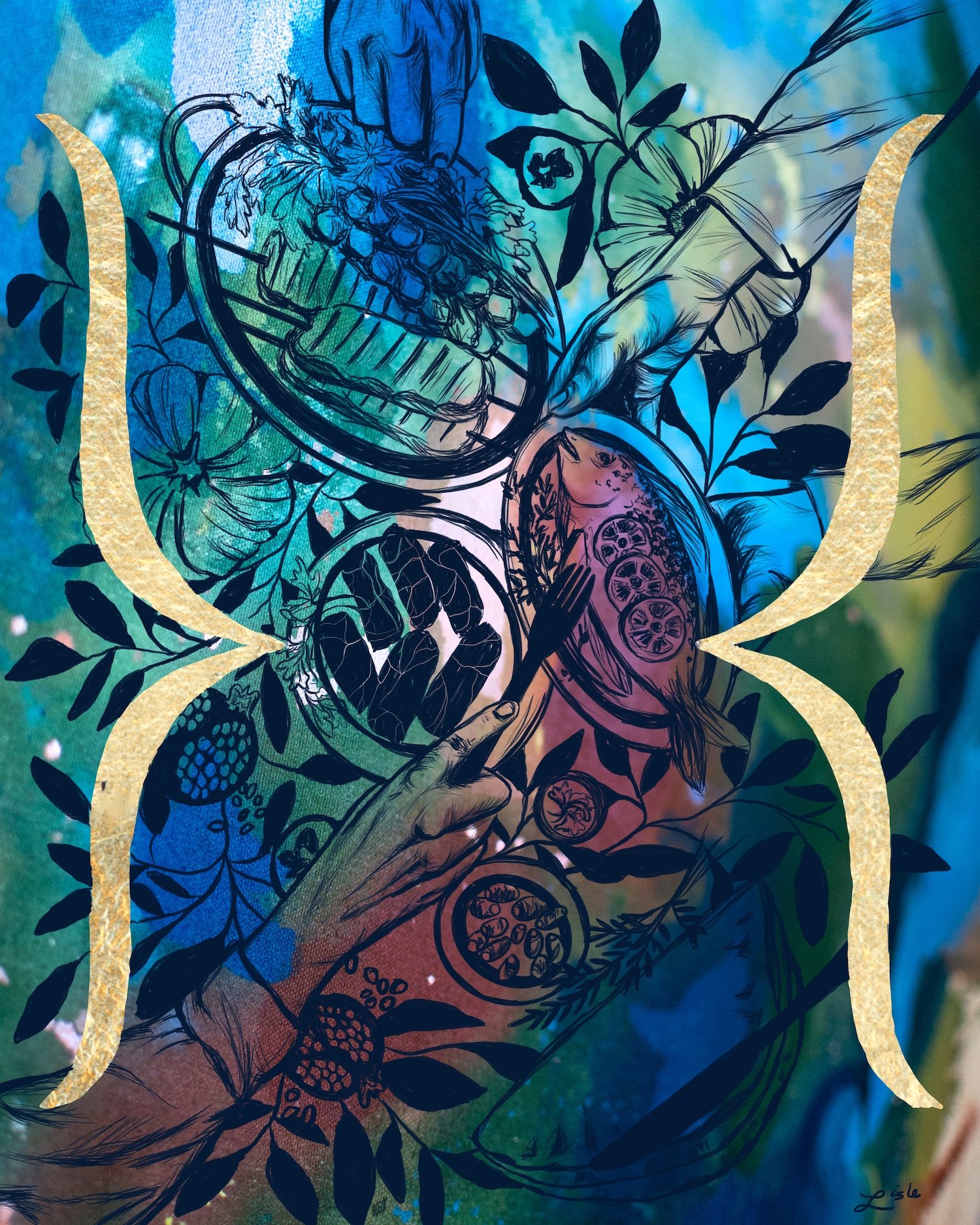The Third Week in Lent: You Are Worthy
The theme of this year’s Lenten devotional, Full to the Brim, is an invitation into a radically different Lent, a full life. It’s an invitation to be authentically who you are, to counter scarcity and injustice at every turn, to pour out even more grace wherever it is needed. And so, this Lent, let us trust – fully – that we belong to God. Let us increase our capacity to receive and give grace. Let us discover the expansive life God dreams for us.
Read: Luke 13:1-9
Commentary by Rev. Larissa Kwong Abazia
“Wait a little longer.”
“Work hard to show what you are capable of.”
“Trust me…”
As a Person of Color, I hear these comments on a regular basis. On my best days, this commentary ignites a fire to change the systems and structures that regularly oppress marginalized people. Other times I wonder, “Am I being pacified just enough to stick around?”
The first thing I want to know is why a fig tree is in the midst of a vineyard. The tree would not be of primary focus in a field cultivating grapes, apparently planted only so that no inch of the ground is squandered.
Many of us experience the world as a fig tree in the midst of grape vines. We are placed in fields not meant for us and yet expected to thrive. People discount and doubt us, threatening to cut us down if we don’t produce in the ways that have been defined on our behalf. We are afterthoughts demanded to bear fruit or be destroyed.
The story of the fig tree reminds us that the world’s expectations do not need to be ours. The gardener puts their faith in that which they have no control. Digging a bigger hole and filling it with manure, they tend to the tree with everything it needs to grow into its purpose. Perhaps this means bearing figs. Or maybe it provides shade for the laborers during the harvest, an opportunity for the gardener to tend to the fields in a new way, or transformation of the owner’s ability to see beyond the commodification of the land.
Those of us living a fig tree existence are invited to be nourished and tended to so that, in time, we grow into our purpose. People with power are reminded to disrupt their knowledge of how the world works and their complicity in earthly systems and measurements so that everyone has an opportunity to thrive. And still others provide nurture in solidarity, trusting that intentional care will lead to new life.
Together, we invest in a fruitful Creation.
What I Forgot
Sometimes I wish I was the fig tree.
No fruit here, just soaking up the sun,
growing roots, turning green,
stretching out my branches until
I can hug the horizon.
Sometimes I wish I was the fig tree,
because she doesn’t produce,
and she’s not exhausted,
and she probably gets eight hours
of sleep at night.
And her branches,
unlike my shoulders,
are not heavy with work—
pulled toward the ground,”
threatening to break.
And her trunk,
unlike my spine,
is not fighting to stand tall
while holding it all together.
Sometimes I wish I was the fig tree
because she knows
what I forgot
many years ago.
You are still worthy
even if
you don’t produce.
Poem by Rev. Sarah (Are) Speed
You Are Worthy | Lauren Wright Pittman
Block print with oil-based ink
Read: Luke 13:1-9
From the Artist | Rev. Lauren Wright Pittman
How often does society wish us to feel like we are wasting soil? The whole capitalist system lurches forward, powered by our collective sense of unworthiness and our searching for worth based on what we produce. This parable upends the notion that we are what we produce, and speaks truth: you are worthy. You deserve rest and care simply for existing. What a gift!
In this image, I wanted the fig tree to look unremarkable, surrounded by the hands of the Gardener reaching down to lovingly massage the soil. The sleeves contain patterning of simplified visual references to everything a plant needs to not only survive, but to thrive. Starting close to the roots and moving upward, the patterns include water, air, sunlight, nutrients, and space. The emphasis in this image is on what is happening below the surface, in the depths of the dirt. The roots stretch toward the hands of the Gardener as the specks of dirt seem to also image the stars of the vast universe. Within us, despite what we produce, despite what can be seen at the surface, we contain multitudes. We bear the image of God, and our mere existence makes us worthy of Sabbath and the loving arms of the Gardener reaching out to provide us with everything we need.
On a personal note, the Full to the Brim theme keeps bringing me back to the image of resting while God reaches to embrace us. Lately I’ve spent so much time and energy fighting so hard to get some kind of tangible grasp of God, all the while feeling so empty. I’m realizing that I need to practice surrender, allowing God to find me where I am, and to receive God’s care and love, filling me to the brim so I can then be full to pour out once again.
Pray
Breathe deeply as you gaze upon the image on the left. Imagine placing yourself in this scene. What do you see? How do you feel? Get quiet and still, offering a silent or spoken prayer to God.
Worthy of Being Fed | Lisle Gwynn Garrity
Acrylic on raw canvas with digital drawing
Read: Isaiah 55:1-9
From the Artist | Rev. Lisle Gwynn Garrity
In my early 20s, in the midst of too many life transitions to navigate at once and a personal crisis that deeply unraveled me, I called an old family friend who happened to live in the new city I had just moved to. I don’t remember what I said, exactly, but the friend instantly sensed that I needed more than just a phone conversation. She invited me to meet her at the park near her apartment. We went on a walk, and as the daylight waned, she said, “Would you like to stay for dinner?”
I’ll never forget the way she warmed up homemade soup from her fridge and fixed me an arugula salad. She dressed it with olive oil and lemon juice, and to my surprise, added a pinch of salt and a shake of pepper. Like manna in my desert, that meal nourished me at a time when I did not think I was worthy of being fed.
The prophet Isaiah brings a message of good news to the Israelites, though they have been in exile for so long that perhaps they’ve forgotten there is a story beyond scarcity. Through Isaiah, God invites them into an abundant life rich with food that is free and waters that satisfy.
In this image, a feast is savored and shared. The brackets, which look like doves flying inward, also form the shape of a vessel that is simultaneously upright and full and also upside down and poured out. We fill up so we can pour out—we can’t give from an empty cup.
In this text, there is no doubt that God’s expansive mercy is abundant. The only question—for the Jewish exiles and for us—is are you ready to be restored? Can you believe you are worthy of God’s nourishing grace? Will you allow yourself to receive it?
Pray
Breathe deeply as you gaze upon the image on the left. Imagine placing yourself in this scene. What do you see? How do you feel? Get quiet and still, offering a silent or spoken prayer to God.



